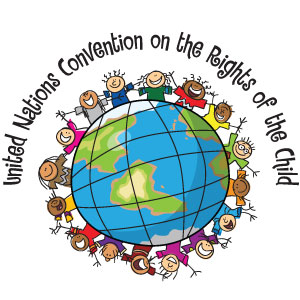
UNICEF RRSA GOLD AWARD
At Chisenhale we strive to ensure that pupils, staff and all stakeholders are aware of the UN Convention on the Rights of the Child. We recognise the importance of children’s rights awareness as it enables them to be responsible citizens in a world of possibilities.
Chisenhale welcomed two visitors from UNICEF in Spring 1 2020, to see all the work that has been carried out to support our pupils’ understanding and to assess the impact of our work. The UNICEF team spent the whole morning at Chisenhale, visiting classrooms and interviewing parents, pupils, staff and governors. The assessors were hugely positive about the pupil's understanding of the articles and we are so proud to announce that Chisenhale has been awarded the hugely prestigious Gold standard award!
The journey continues with the help of the Rights Councillors who lead the school in our growing awareness of the rights of children locally and globally. We look forward to thinking in more detail about the sustainable development goals and how we can become more ecologically aware as a school. Thank you all for your conversations with your children and your involvement in our rights-based whole school events, with your help we will continue to learn together for a better future.
Please read the report below:
RRS
What is RRSA?
The Rights Respecting Schools Award puts children’s rights at the heart of a school’s ethos.
The Award aims to ensure that children are aware of their universal rights (which are detailed in the United Nations Convention on the Rights of the Child) and that these rights are at the heart of the children’s learning. A large part of the award involves children learning about their responsibility to respect other people’s rights and how rights and responsibilities work together.
It is based on principles of equality, dignity, respect, non-discrimination and participation.
It’s aim is to improve wellbeing and help all children and young people to realise their potential. The Award has been proven to have a positive impact on relationships and wellbeing, leading to better learning and behaviour, improved academic standards and less bullying.
There are three levels to the Award:
- Bronze: Rights Committed
- Silver: Rights Aware
- Gold: Rights Respecting
Why are children’s rights so important?
In our society, the rights of children are often overlooked and many children do not have a basic knowledge of them. Often, children can receive unfair treatment or be ignored in decision-making on issues that affect them. The Convention changes the way children are treated and viewed, and emphasises that children have voices that must be heard.
The impact of the award
We have witnessed that this award has a really positive influence on the school community, including:
- Improved self-esteem and well-being
- Improved relationships and behaviour (reductions in bullying and exclusions and improved attendance)
- Improved engagement in learning
- Positive attitudes towards diversity in society and the reduction of prejudice
- Children and young people’s enhanced moral understanding
- Children and young people’s support for global justice
- Children and young people become more involved in decision-making in schools.
Rights Vocabulary
Here are some of the key vocabulary we use to help learn about, through and for rights.
- Duty Bearers: These are all the people whose responsibility it is to make sure children’s rights are respected. This starts with the government but also includes parents and all school staff.
- Equity: The concept that every child deserves to have the support they need to succeed and that this support will look different for each child.
- Dignity: The way in which all children should be treated at all times. No matter the barriers a child is encountering at Chisenhale they should be treated with respect.
ABCDE of Rights:

How can you help?
Three ways you can support our RRSA approach:
- Watch or read age appropriate news and discuss how it relates to children’s rights
- Discuss topics your child is studying at school and how they relate to children’s rights
- With reference to the poster of Rights (see below) celebrate when your child gets to enjoy their rights as this really is a cause for celebration
